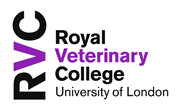Babesiosis is a disease symptomatically very similar to malaria, caused by Babesia parasites infecting and multiplying in erythrocytes. Babesia and Plasmodium are closely-related protozoan parasites. Both are transmitted by insect vectors. Babesiosis affects a large range of vertebrates including livestock, companion animals, and also humans. In animals Babesia infections are frequently fatal if left untreated and cause a significant economic burden. Babesiosis in humans is a zoonotic disease. The disease is mostly asymptomatic and only fatal in immune-compromised or elderly individuals. However, numbers of human babesiosis cases are rising, especially in the USA where this parasite is the most common transfusion-transmitted pathogen.
All symptoms of this disease, and onward transmission result from the cyclical invasion of host erythrocytes, and thus a better understanding of this process could yield vital new drug or vaccine candidates. Whereas this process is well-studied for malaria parasites, little is known about this process in Babesia. Proteins in specialised organelles called micronemes are required for host cell recognition and parasite motility. Thrombospondin type 1 repeat domain (TSR) proteins form an important group of micronemal proteins in Plasmodium and have critical roles in motility, invasion of salivary glands, hepatocytes and erythrocytes. Some TSR-containing proteins recognise glycosaminoglycans on the host cell surface and at the same time connect to the actin-myosin motor through their cytoplasmic tail, generating the motility required for host cell invasion. One such example is the thrombospondin-related anonymous protein (TRAP). Four TSR-domain containing proteins can be identified in the B. divergens genome. Based on limited transcription profiling all four genes appear expressed in blood stages of Babesia. Three of these hypothetical proteins are secreted TSR-proteins, one of which is showing domain structures reminiscent of TRAP. We hypothesise that similar to Plasmodium, TSR-proteins are involved in and required for erythrocyte invasion of B.divergens.
This project will study the role of B.divergens TSR-proteins in erythrocyte invasion to understand the steps leading to invasion and to rationalise their use as vaccine candidates.
The projects main objectives are:
Confirm gene models and transcription profiles of all 4 genes encoding TSR-domain containing proteins during the blood cycle stage of B. divergens.
Determine the essentiality/redundancy of each of these proteins during host cell invasion and their vaccine potential.
Visualise the localisation of these potential parasite adhesins during invasion using real-time fluorescence microscopy.
Identify host cell receptors on human and bovine erythrocytes.
The project will utilise in vitro tissue culture systems established for B.divergens elsewhere in the world as well as genome editing methodology using CRSIPR/Cas9 followed by real-time fluorescence imaging techniques. We will adapt existing CRISPR/Cas9 vectors to generate inducible gene knockouts, domain swaps or deletions and point mutations of essential TSR-proteins. Generating specific antibodies, we will test these in invasion inhibition experiments. Imaging of transgenic B.divergens parasites will pinpoint at which step of the invasion process these ligands act. Furthermore, the motility of free transgenic B.divergens parasites will be quantitated and potential host cell receptors characterised.
This studentship will be held jointly between the labs of Dr Ellen Knuepfer, which are based at the beautiful Hawkshead Campus of the RVC and Dr Robert Moon at the London School of Hygiene and Tropical Medicine in London. Ellen has a strong background in reverse genetics using CRISPR/Cas9 in Plasmodium as well as protein biochemistry tools to study protein-protein interactions. Robert Moon’s lab has established a zoonotic Plasmodium parasite, Plasmodium knowlesi, to in vitro cell culture and uses reverse genetics to study host cell invasion, parasite motility and drug resistance making use of the the state-of-the-art imaging suite at LSHTM. Further support to the studentship will be provided by Prof Dirk Werling (RVC, Hawkshead campus) who has a strong background in immunology. This project offers an exciting opportunity to work in two world-class research institutions with leading labs in the field of malaria, branching out newly into the field of babesiosis.
Strong national/international collaborations exist with Oxford University, ITM Antwerp, Francis Crick Institute, the NY Blood Centre and University of Florida, University of Granada. All three group leaders have been successful with recent grant applications and therefore lead financially well supported research groups.
Requirements
Essential
Must meet our standard PhD entry requirements
Successful degree in biological or similar subject or a related veterinary degree
Self-motivated
Good knowledge of molecular biology
Interest in infectious disease, cell and molecular biology
Desirable
Practical experience in tissue culture/sterile working techniques and molecular biology
This project will start in October 2023, will be lab-based, and require work with human and/or bovine blood.
Find out more: www.rvc.uk.com/phd_babesia

 Continue with Facebook
Continue with Facebook



